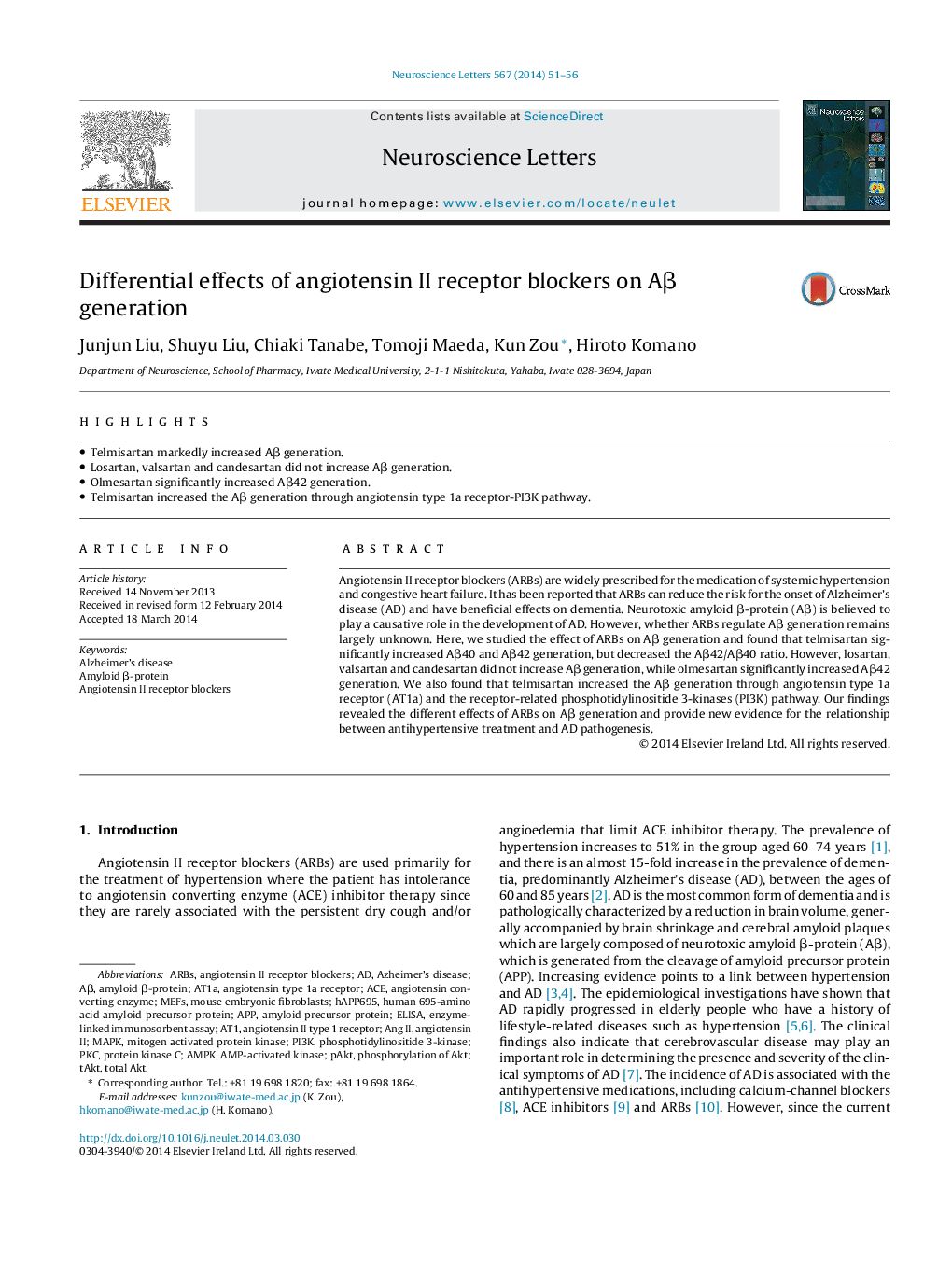| Article ID | Journal | Published Year | Pages | File Type |
|---|---|---|---|---|
| 6282064 | Neuroscience Letters | 2014 | 6 Pages |
Abstract
Angiotensin II receptor blockers (ARBs) are widely prescribed for the medication of systemic hypertension and congestive heart failure. It has been reported that ARBs can reduce the risk for the onset of Alzheimer's disease (AD) and have beneficial effects on dementia. Neurotoxic amyloid β-protein (Aβ) is believed to play a causative role in the development of AD. However, whether ARBs regulate Aβ generation remains largely unknown. Here, we studied the effect of ARBs on Aβ generation and found that telmisartan significantly increased Aβ40 and Aβ42 generation, but decreased the Aβ42/Aβ40 ratio. However, losartan, valsartan and candesartan did not increase Aβ generation, while olmesartan significantly increased Aβ42 generation. We also found that telmisartan increased the Aβ generation through angiotensin type 1a receptor (AT1a) and the receptor-related phosphotidylinositide 3-kinases (PI3K) pathway. Our findings revealed the different effects of ARBs on Aβ generation and provide new evidence for the relationship between antihypertensive treatment and AD pathogenesis.
Keywords
MEFsAngiotensin type 1A receptorAT1ApAktAT1PKCAMPKAPPACEPI3KAβARBsMAPKamyloid β-proteinangiotensin converting enzymeangiotensin II type 1 receptorAngiotensin IIAlzheimer's diseaseEnzyme-linked immunosorbent assayELISAAng IIangiotensin II receptor blockersmouse embryonic fibroblastsamyloid precursor proteinProtein kinase Cmitogen activated protein kinaseAMP-activated kinase
Related Topics
Life Sciences
Neuroscience
Neuroscience (General)
Authors
Junjun Liu, Shuyu Liu, Chiaki Tanabe, Tomoji Maeda, Kun Zou, Hiroto Komano,
